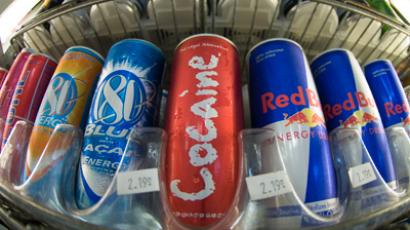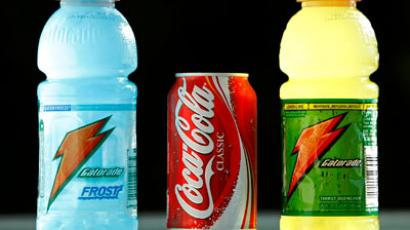Plastic chemical found in nearly 500 foods sold in US

Nearly 500 food items commonly sold in the United States contain a chemical compound also used in synthetic leathers and yoga mats, but a health research and advocacy organization is aiming to change that.
Fast-food chain restaurant Subway made headlines earlier this month when it announced that it would no longer be including that compound — azodicarbonamide, or ADA — as a “dough conditioner” in the sandwich bread used in thousands of locations around the globe. But researchers at the Environmental Working Group say Subway isn’t the only guilty party, and that roughly 130 other companies mass-produce and sell an array of products that should have that chemical from their recipes as well.
According to a report released by that group on Thursday this week, consumers are just about as likely to find azodicarbonamide while at the grocery store as they would be inside a plastics factory. The Environmental Working Group, or EWG, has been constructing a database containing the ingredients of 80,000 foods sold across the US, and say Subway shouldn’t be the only ones changing their recipes.
“This industrial plastics chemical shows up in many commercial baked goods as a ‘dough conditioner’ that renders large batches of dough easier to handle and makes the finished products puffier and tough enough to withstand shipping and storage. According to the new EWG Food Database of ingredients in 80,000 foods, now under development, ADA turns up in nearly 500 items and in more than 130 brands of bread, bread stuffing and snacks, including many advertised as ‘healthy,’” the report reads.
Among the suspect brands, the EWG report claims, are Ball Park, Butternut, Country Hearth, Fleischman’s, Food Club, Harvest Pride, Healthy Life, Jimmy Dean, Joseph Campione, Kroger, Little Debbie, Mariano’s, Marie Callendar’s, Martin’s, Mother’s, Nature’s Own, Pillsbury, Roman Meal, Sara Lee, Schmidt, Shoprite, Safeway, Smucker’s, Sunbeam, Turano, Tyson, Village Hearth and Wonder.
“EWG recommends that consumers take steps to avoid the industrial additive ADA in their food. It is an unnecessary ingredient, its use has raised concerns about occupational exposure, and questions remain about its potential risk to consumers,” the group writes. “EWG also calls on all manufacturers to immediately end its use in food.”
Federal regulators, on the other hand, haven’t had a problem with ADA just yet. The US Food and Drug Administration has long approved the addition of ADA in consumable, as long as its presence doesn’t exceed 0.0045 percent of the weight of the flour used, as have the FDA’s Canadian counterparts. Elsewhere regulators have been more willing to hear out consumer concerns, however, and officials in Australia and the European Union have failed to give the okay to ADAs.
Soon that same anti-sentiment could become rampant in America: earlier this month US Senator Charles Schumer (D-New York) asked the FDA to ban ADAs altogether, and other fast-food chains have been pressured to stop using the chemical in the wake of the successful Subway petition that garnered more than 67,000 signatures from anti-azodicarbonamide advocates.
The FDA approved the chemical compound as being safe-in-moderation with regards to foods meant for human consumption back in 1962, but the banning 25 years later of another common dough conditioner — potassium bromate — has increased reliance on ADA ever since.
Despite being cleared as safe by the FDA, the World Health Organization has gone the record to say that epidemiological studies in humans and animals alike have produced "abundant evidence that azodicarbonamide can induce asthma, other respiratory symptoms and skin sensitization"














